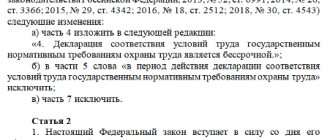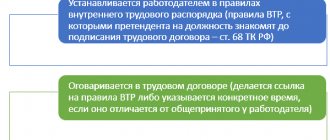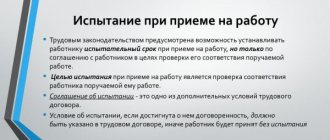The list of circumstances preventing marriage is minimal, which corresponds to the principle of minimal government intervention in family affairs. Along with the conditions under which marriage can be concluded, the law (Article 14 of the Family Code of the Russian Federation) also establishes obstacles to marriage, which in the legal literature are called negative conditions for marriage.
There are four circumstances that prevent marriage:
1. Having another marriage. No one has the right to enter into a new marriage until the previously concluded marriage has ended due to the death of a spouse, the declaration of one of the spouses as deceased, divorce or its recognition as invalid. When the termination of a marriage complies with the law, the law does not establish any restrictions on remarriage (for example, “prohibitory periods” after divorce, “mourning periods” after the death of a spouse).
Previously, the criminal legislation in force provided for criminal liability for polygamy. The new Criminal Code of the Russian Federation does not provide for such a crime.
2. Close relationship. Marriage is not allowed between direct relatives in the ascending and descending lines, without taking into account the degree of kinship, as well as between lateral relatives up to the second degree of kinship: full and half-blooded (having only a father or mother in common) brothers and sisters. The ban is dictated, first of all, by concern for the health of future children and the prevention of the birth of defective offspring. It has been established that consanguineous marriages lead to a higher percentage of hereditary diseases and developmental defects in children. For example, the number of births with Down syndrome and severe pathology in families where spouses are first cousins is 2 times higher than in ordinary families. And the proportion affected by schizophrenia among first-degree relatives is 1:10. However, the new family legislation of the Russian Federation has not made any changes to this issue, although proposals have been repeatedly made in the legal literature to expand the number of prohibitions for biological and ethical reasons. In many foreign countries, incestuous marriages entail criminal liability. The Criminal Code of the Russian Federation does not provide for such a crime.
There is no prohibition on marriage between collateral relatives of a more distant degree of kinship: cousins (third degree of collateral relationship), uncle (aunt) and niece (nephew) (fourth degree of collateral relationship), etc., as well as between stepchildren brothers and sisters (children of each spouse), since the latter are not related, but rather property.
3. Adoption. Based on moral and ethical considerations, the adoptive parent and the adopted child cannot enter into marriage (as long as adoption exists), since the adopted child is fully equated by law to the adoptive parent’s own children. At the same time, marriages are allowed between persons who, as a result of adoption, find themselves in the relationship of direct relatives or in the position of brothers and sisters.
4. Incapacity of the person(s) entering into marriage. A citizen who has been declared incompetent by a court due to a mental disorder (mental illness or dementia) cannot marry. By establishing such a prohibition, the law proceeds, first of all, from the interests of the incapacitated person. An incapacitated citizen is not able to consciously decide on the issue of marriage; normal family life is impossible with a mentally ill person; children born in such a marriage may also turn out to be mentally handicapped.
A citizen is recognized as legally incompetent if, due to a mental disorder, he cannot understand the meaning of his actions or control them (Article 29 of the Civil Code of the Russian Federation).
Recognition of a citizen - a chronic alcoholic or drug addict - as having limited legal capacity in accordance with Art. 30 Civil Code of the Russian Federation. Although the danger of having children from the marriage of persons, at least one of whom suffers from chronic alcoholism or drug addiction, for future offspring is obvious, confirmed by medical statistics.
The given list of circumstances preventing marriage is exhaustive. The Family Code directly prohibits any form of restriction of the rights of citizens upon marriage on the basis of social, racial, national, linguistic or religious affiliation (Clause 4 of Article 1 of the Family Code of the Russian Federation). The presence of certain types of diseases (tuberculosis, sexually transmitted diseases, etc.) does not exclude marriage. The law does not impose an obligation on those wishing to get married to provide information about their health status. Medical examination is permissible only at the request of future spouses and is not mandatory. The only exceptions are the presence of a sexually transmitted disease and HIV infection, of which the spouses must be informed before marriage. Failure to provide such information entails the recognition of the marriage as invalid at the request of the other spouse (Article 15 of the Family Code of the Russian Federation). However, the fact of these diseases is not a basis for refusal to register a marriage.
Violation of the conditions for concluding a marriage, as well as concluding a marriage in the presence of obstacles to the marriage, leads to its invalidity. The Family Code of the Russian Federation establishes both the procedure for recognizing a marriage as invalid and the associated legal consequences.
At the request of future spouses, they also have the right to receive consultations on medical-genetic issues and family planning. The Family Code of the Russian Federation for the first time introduced into Russian family legislation the institute of medical examination of persons entering into marriage [1]. Unlike the procedure established in a number of foreign countries, in Russia medical examination is strictly voluntary. It can only be done with the consent of the persons getting married and wishing to know about the state of their health before such an important event in life as marriage and starting a family.
The purpose of a medical examination of persons entering into marriage is both to determine the general state of their health and to identify diseases that pose a danger to the future spouses themselves or their offspring. Moreover, the presence or detection of such diseases in one of the spouses, regardless of their severity and possible adverse consequences (except for mental illness, for which the citizen was declared incompetent by the court) is not an obstacle to marriage. However, the law establishes that if one of those entering into marriage hid from the other the presence of a sexually transmitted disease or HIV infection, then the latter, after the marriage, has the right to demand through the court that such a marriage is invalid (clause 3 of article 15 and clause 1 of article 27 Family Code of the Russian Federation). The basis for going to court in these cases is precisely the fact of concealment of such a disease, which is usually sexually transmitted, and not the fact that the spouse has it.
Medical examination and consultation of persons entering into marriage is carried out free of charge in any state or municipal medical institutions that have the appropriate specialists and equipment, as well as the authority to conduct such examinations and consultations.
This is interesting: Loan for the purchase of a summer house
The results of the medical examination are a medical secret. It is defined as information about the fact of treatment, the state of health of the citizen, the diagnosis of his disease and other information obtained during his examination. Medical confidentiality is protected by law. Persons getting married and having undergone the examination may be mutually aware of its results only with each other’s consent.
Thus, the law does not allow marriage between:
- persons of whom at least one person is already married to another;
- adoptive parents and adopted children;
- persons of whom at least one person has been declared incompetent by a court due to a mental disorder.
Commentary to Art. 14 IC RF
The law also points out a number of circumstances that prevent marriage. In particular, it is not allowed to enter into a marriage between persons, at least one of whom is already in another registered marriage. Such a ban is based on the recognition of the principle of monogamy (monogamy), which, in turn, is a reflection of certain moral and religious views that prevail in our society. The Law refers only to registered marriages, so the status of the de facto marital relationship is not taken into account.
This is interesting: Fine for not allowing pedestrians to cross a zebra crossing
In accordance with Art. 26 of the Law on Civil Status Acts, persons entering into marriage are required to indicate in the marriage application whether they were previously in a registered marriage. The termination of a previous marriage must be confirmed by relevant documents (divorce certificate, death certificate of a spouse, court decision declaring the marriage invalid).
Marriages between close relatives are prohibited, which means relatives in a direct ascending and descending line (parents and children, grandparents, grandchildren), full and half-blooded (having a common father (half-blood) or mother (half-blood)) brothers and sisters. Half-siblings should be distinguished from half-siblings. Step brothers and sisters are children of spouses who had children from their first marriage and entered into a new marriage. One of them is a parent for the children, and the other is a stepfather or stepmother.
This prohibition is due to both moral considerations and concern for the offspring, since as a result of such marriages, incest occurs and defective children are born. In some countries, marriages with more distant relatives are also prohibited. So, in accordance with Art. 26 IC of Ukraine, unlike Russia, cousins cannot be married to each other.
Marriages between adoptive parents and adopted children are prohibited. This prohibition is based on the fact that although in this case there is no consanguinity, in its legal consequences adoption is generally equated to consanguinity. Therefore, allowing marriage between the adoptive parent and the adopted child would be contrary to the rules of ethics.
An obstacle to marriage is the incapacity of one of the persons entering into marriage (incompetent is a citizen who, due to a mental disorder, cannot understand the meaning of his actions or manage them). The ban is based on the fact that such a citizen cannot fully demonstrate conscious will when entering into marriage. In addition, mental illnesses often run in families, which could adversely affect offspring.
According to Art. 27 of the Law on Acts of Civil Status, the head of the registry office may refuse state registration of a marriage if he has evidence confirming the presence of circumstances that impede marriage. In this case, persons who submitted an application for marriage are notified of the postponement of marriage registration. If information about such obstacles is not confirmed, marriage registration is carried out on a general basis.










